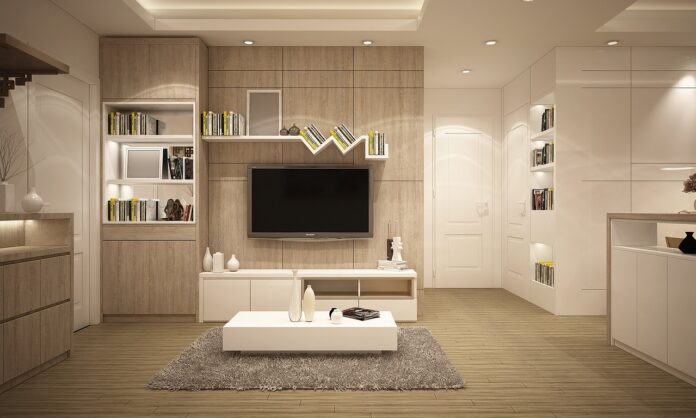A smart home is essentially a modern house with various technological devices and applications that can be controlled remotely by smartphones, tablets, desktop computers, and smartwatches. Therefore, your PC or handheld mobile device can now be used to control devices and applications remotely to adjust things like lighting and heating without having to do it manually.
Smart homes tend to have various entertainment devices and other technological devices and applications that are designed to make our lives easier in the kitchen, bedroom, living room, and even the garden.
Some homes can’t ever truly become smart homes because they are just too old, or it just wouldn’t fit the style and décor of the house for it to be completely ‘smart.’ However, most new builds are designed to be smart homes and are hailed as the homes of the future. Let’s dive in and look at what makes a home smart and discover whether dumb homes or smart homes will prevail in 2024.
Which type of house will win in 2024?
When clappers were first introduced into the home more than thirty years ago, they were seen as a huge step in making our lives just a little bit easier and more comfortable. The idea was to make homes more intelligent.
Granted, they could only switch certain things like lights, televisions, and heating on and off. Although the technology wasn’t ideal, this was the first major step in the right direction to making homes ‘smart.’ Electronically timed light switches that would come on and off at a certain time of the day were also early forms of smart home technology.
Over the past ten years, homes have become more intelligent than ever, thanks to several technological advancements. Modern homeowners are choosing to live in newly built smart homes, or at least upgrade their current ‘dumb homes’ to make them smarter.
As is the case with most technological developments, it’s the older generations who are less willing to embrace change and would rather live in a dumb home than a smart home. Despite the reluctance to live in smart homes, they are unquestionably winning the race to become the leading type of home. There are now more smart homes than ever, and they are packed with smart devices controlled remotely to make our lives a little bit easier.
Having a smart home gives people the space to watch the big games on high-demand sports streaming sites and play triple-A video games or live in-play games without latency issues dragging the experience down. They can also read eBooks, stay up to date with social media, shop online, and manage their finances/online banking.
What’s the point of a smart home?
The point of having a smart home is to make your life less stressful. However, some smart home devices and applications can encounter the occasional bug that can potentially lead to security risks or devices not working how they should. When this happens, it can make life more stressful; the opposite of what technology is supposed to do. Most of the time, smart home technology runs smoothly. It’s just a pain when tech malfunctions!
Smart homes are far more convenient than dumb homes because your appliances and devices can be controlled remotely from anywhere in the house. They can even be controlled when far away from home. You just need to have the correct applications downloaded and installed into your preferred desktop or mobile device, plenty of battery, and a decent WiFi signal.
You can set up your smart home in one of two ways – either hardwired or wireless. Some people will argue that a hardwired smart home is better than wireless, and others will say the opposite.
Can smart homes save me money?
Yes. Smart homes can save you money in the long run, but having a full-scale smart home can initially cost thousands of dollars. Thankfully, some of the most essential smart home devices and applications today will set you back less than a couple of hundred dollars.
At the end of the day, it’s down to you whether you want to live in a smart home. With ongoing technical advancements, they are already so much better than standard ‘dumb’ homes and will continue to improve into the future.















